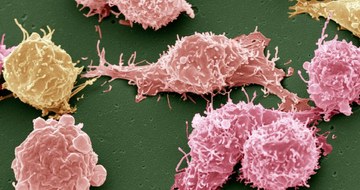Abstract
Background
Detection of the BRAF V600E mutation in pediatric low-grade glioma has been associated with a lower response to standard chemotherapy. In previous trials, dabrafenib (both as monotherapy and in combination with trametinib) has shown efficacy in recurrent pediatric low-grade glioma with BRAF V600 mutations, findings that warrant further evaluation of this combination as first-line therapy.
Methods
In this phase 2 trial, patients with pediatric low-grade glioma with BRAF V600 mutations who were scheduled to receive first-line therapy were randomly assigned in a 2:1 ratio to receive dabrafenib plus trametinib or standard chemotherapy (carboplatin plus vincristine). The primary outcome was the independently assessed overall response (complete or partial response) according to the Response Assessment in Neuro-Oncology criteria. Also assessed were the clinical benefit (complete or partial response or stable disease for ≥24 weeks) and progression-free survival.
Results
A total of 110 patients underwent randomization (73 to receive dabrafenib plus trametinib and 37 to receive standard chemotherapy). At a median follow-up of 18.9 months, an overall response occurred in 47% of the patients treated with dabrafenib plus trametinib and in 11% of those treated with chemotherapy (risk ratio, 4.31; 95% confidence interval [CI], 1.7 to 11.2; P<0.001). Clinical benefit was observed in 86% of the patients receiving dabrafenib plus trametinib and in 46% receiving chemotherapy (risk ratio, 1.88; 95% CI, 1.3 to 2.7). The median progression-free survival was significantly longer with dabrafenib plus trametinib than with chemotherapy (20.1 months vs. 7.4 months; hazard ratio, 0.31; 95% CI, 0.17 to 0.55; P<0.001). Grade 3 or higher adverse events occurred in 47% of the patients receiving dabrafenib plus trametinib and in 94% of those receiving chemotherapy.
Conclusions
Among pediatric patients with low-grade glioma with BRAF V600 mutations, dabrafenib plus trametinib resulted in significantly more responses, longer progression-free survival, and a better safety profile than standard chemotherapy as first-line therapy. (Funded by Novartis; ClinicalTrials.gov number, NCT02684058. opens in new tab.)
QUICK TAKE VIDEO SUMMARYDabrafenib plus Trametinib in Pediatric Glioma
Author Affiliations
From the Hospital for Sick Children, University of Toronto, Toronto (E.B., U.T.); the Royal Children’s Hospital, University of Melbourne, Murdoch Children’s Research Institute, Melbourne, VIC, and the Women’s and Children’s Hospital, South Australia Health and Medical Research Institute, South Australian immunoGENomics Cancer Institute, and the University of Adelaide, Adelaide — all in Australia (J.R.H.); IRCCS Giannina Gaslini Institute, Genoa (M.L.G.), and IRCCS Bambino Gesù Children’s Hospital, Catholic University of the Sacred Heart, Rome (F.L.) — both in Italy; Osaka City General Hospital, Osaka, Japan (J.H.); the Ann and Robert H. Lurie Children’s Hospital of Chicago, Northwestern University Feinberg School of Medicine, Chicago (A.P.-F.); Institut Curie, SIREDO Oncology Center, Paris Sciences et Lettres Research University, Paris (I.A.); the Princess Máxima Center for Pediatric Oncology, Utrecht, the Netherlands (J.L.); Dmitry Rogachev National Medical Research Center of Pediatric Hematology, Oncology and Immunology, Moscow (L.P.); the Department of Neuropathology and Clinical Cooperation Unit Neuropathology (F.S.) and the Hopp Children’s Cancer Center, German Consortium for Translational Cancer Research, and National Center for Tumor Diseases, German Cancer Research Center, Heidelberg University Hospital, Heidelberg, Germany (F.S., O.W.); the Sidney Kimmel Comprehensive Cancer Center at Johns Hopkins, Baltimore (K.J.C.); Children’s National Hospital, Washington, D.C. (R.J.P.); Novartis Pharma, Basel, Switzerland (L.S., A.B.P.S.); Novartis Pharmaceuticals, East Hanover, NJ (M.R.); and the University College London Great Ormond Street Institute of Child Health, London (D.R.H.).
Dr. Bouffet can be contacted at eric.bouffet@sickkids.ca or at the Hospital for Sick Children, 555 University Ave., Toronto, ON M5G 1X8, Canada.


